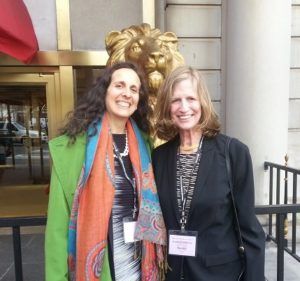
What a heady time! Several clients are in conversation with half a dozen publishers about their books.
I eagerly await their emails each morning to see the latest developments.
In addition, I recently received an email from an acquisitions editor colleague saying that this excellent publisher (the top choice for many of my clients, particularly therapists) still has three spots on their list for publishing Fall 2018.
Why is June so busy?
Acquisitions pretty much shuts down for most of the summer, though early to mid-July can sometimes be fruitful. In June, publishers are usually finalizing their choices for whatever list they are working on. They work on multiple lists at once: Fall 2018, December 2018, January 2019, Spring 2019, Fall 2019, depending on the space left in each slot, the time frame in which each manuscript is promised to be delivered and the specific synergy of launching at that particular time of year (think Christmas, New Year’s Resolutions, Mother’s Day).
Publishers have target numbers of books to publish, often in several specific categories. If deadlines are looming and a publisher still has some empty spots in a list that needs to fill, June can be an excellent time to pitch your book.
Keep in mind, though, that Book Expo America—BEA—takes place in late May or early June each year. This is the publishing industry’s biggest conference, where new books are launched with great fanfare, bestselling authors sign new releases for their most die-hard fans and agents meet with acquisitions editors to pitch their most promising clients’ books.
After BEA, acquisitions editors will read the proposals pitched by agents and acquisitions boards will meet, weekly or bi-weekly, to decide on which books to publish. It’s one of the most busy periods in publishing. Yet, if they acquire a smaller number than their target—and publishers are picky—there may a window to get speedy attention.
Lisa, What’s Your Advice?
I usually advise aspiring authors to query literary agents first and let them handle working with a publisher. There are many advantages of working with literary agents, which I detail in the post linked in this sentence.
However, let’s say your platform is modest, perhaps enough to interest a niche publisher, but not big enough for a publisher that will pay a big advance. In that case, it may be hard to find a literary agent to represent you, even if your chances of attracting a publisher are decent, because the advance is likely too modest to justify the agent’s time.
In that case, I advise to do what community building, email list building and platform building you can, then query agents. If you get the feedback that your platform just doesn’t cut it, it could be time to query publishers directly. And any time a publisher is looking to finalize a list, there may be space on it.
How Do I Query Publishers Directly?
First, check their submissions guidelines on their website. Usually, publishers want to receive a query email first and, if they respond positively to that, you can send your book proposal—immediately! Have it ready to go and in perfect, polished shape!
However, some publishers, particularly academic publishers, will invite you to submit more information—sometimes even the whole proposal—up front. This is why it’s important to read each publisher’s submissions guidelines.
Should you change your book proposal to correlate exactly with the proposal section titles listed on the guidelines page? No, not necessarily. I encourage my authors to make sure they have all the sections required, but it doesn’t have to be in the order or with the headings the publisher uses. In addition, if some publishers don’t request a marketing or promotion plan, I still encourage authors to include one. It gives them an additional edge in the marketplace.
What’s the Timing?
In general, I would not worry too much about timing for your query. Let the publisher concern themselves with what time of year to launch your book. However, as mentioned, publishing usually does tend to slow down considerably for the summer. The email I received is a bit of an exception in that this acquisitions editor was looking for potential books to pitch in a meeting in early July.

Just to be sure of my advice, I checked in with literary agent Jeanne Fredericks who said that she tends to get all her submissions out by early July (although you want to stay away from the July 4 weekend). While Jeanne has ocassionally sold some books in the summer, she has the advantage of being a literary agent and knowing acquisitions editors, so she can find out when an editor will be in the office and the likelihood of an upcoming pub board meeting.
“Even during July and August when so many of the senior executives are on vacation, making it difficult to get an approved offer, one may find acquisitions editors in the office with more time on their hands to read submissions, since there are fewer meetings cluttering up the day.” Jeanne points out that if your book proposal is read by an enthusiastic editor in August, things can move more quickly for your book once everyone returns to the office. So, the slow summer can work to your advantage, but only if the editor you write to is not also on vacation.
Generally, as an author and not a literary agent, I would not send a pitch to a publisher after late June or early July. Some agents also take the summer off and others are open to summer queries.
The first week of September publishers will be inundated with submissions, but that doesn’t mean it’s a bad time. Jeanne Fredericks suggests you be aware of the dates of the Frankfurt Book Fair (October 11-15 2017) and the London Book Fair (April 10-12 2018) as those are times that important members of the editorial board will be away as well.
What to Work on This Summer
 To play it safe, I often suggest a client either submit to agents in the spring or use the summer to further build their platform or strengthen their proposal in other ways:
To play it safe, I often suggest a client either submit to agents in the spring or use the summer to further build their platform or strengthen their proposal in other ways:
- Freshen your website. Add a new compelling free offer (often called a “lead magnet”).
- Schedule speaking gigs for one to two years out (closer to a possible “pub date” or launch).
- Do some guest posting for high traffic blogs in your niche.
- Write—and pitch—some op-eds or articles.
- Network. Follow your mentors and colleagues on social media and support what they are doing. Later, you can ask them for an endorsement or book blurb.
- Get feedback from readers on your sample chapter.
- Research additional agents or publishers. Publishers Marketplace is an excellent resources for this.
- Write additional chapters. While there is some wisdom to getting feedback from agents and publishers on your sample chapters and chapter outlines before writing additional chapters, writing more than your sample chapters has its advantages:
1) You will have less pressure to complete your book in a short period of time.2) You can have more time to polish those chapters and get feedback from both readers in your target market, as well as a professional book editor.
3) You will shorten the time to complete your book, which also has multiple advantages.
So, if your book proposal is nearing completion, while I encourage you to enjoy the summer, do take some time to engage in some of the above activities that will make your submission as strong as possible. Then query agents (or publishers) in early September.




Hi Lisa
I have a question about format of the “Author” section of the proposal.
I’m a physician who has written a memoir. Should I write the author section in paragraph form, or should it be formatted as bullets, the way it’s done in my CV. ie
Personal Information:
* Born: Los Angeles, California
* College: UCLA
*Medical School: Creighton University School of Medicine
Training:
*UCLA school of Medicine Dept of Neurosurgery
Practice experience:
*U.S. Public Health Service 19xx – 19xx
*Private practice: 19xx – 19xx
Memberships in Professional Organizations:
*Willamette Writers, Portland, Oregon
*Central Oregon Writer’s Guide. Bend, Oregon
*American Medical Association
You get the idea.
Thanks much for the guidance.
Tom
Great question, Tom.
Put it in paragraph form. Because most publishers and literary agents are looking for prospective authors who are already reaching an audience, what we can “having a strong author platform,” you want to demonstrate that early on in the proposal. If you’ve been interviewed on the news or written an op ed for the LA Times, find a way to put that PR in the first paragraph. If you haven’t had any PR just start with your expertise and work at UCLA, etc. but perhaps consider, if you’re still at UCLA, letting the PR department at UCLA know you’re available for media interviews on specific topics.
Your about the author should include credentials and platform. You can leave out details about children and dogs–people often mistakenly put that in, but the about the author section is not the “dustjacket” or back cover copy.
Good luck!